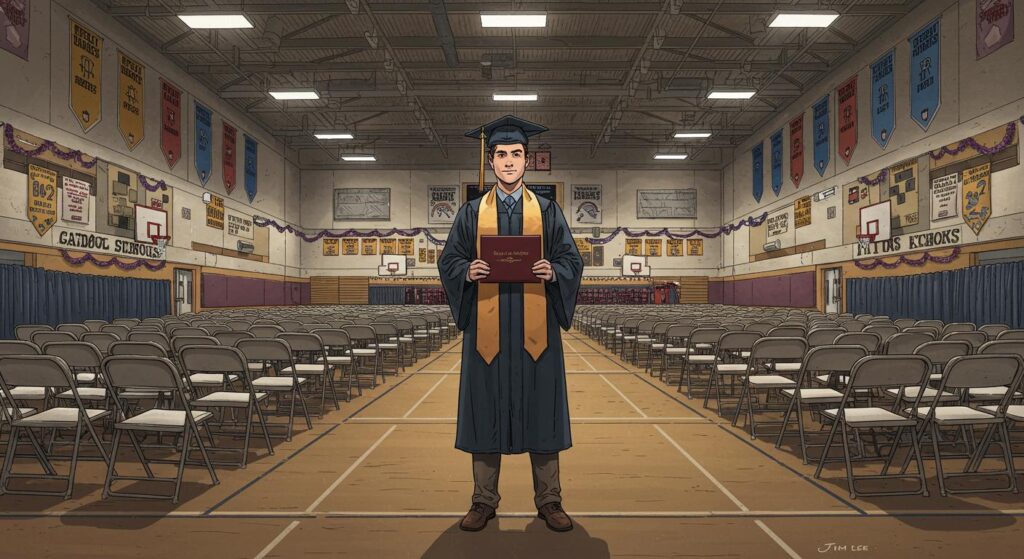Of all the ways small towns commemorate their founders—bronze statues, plaques, or perhaps a city park named in their honor—Rosemont, Illinois, has selected a rather singular approach. As described in a WGN report, the suburb just outside Chicago plans to memorialize its late mayor, Donald Stephens, by installing an animatronic replica in its new village hall museum. It’s not every day you hear about a town leader being honored by a motion-activated, gravelly-voiced robot.
History, Hummel Figurines, and a Robotic Mayor
Donald Stephens was more than a fixture of Rosemont—he was the central character. Chosen as mayor in 1956, the year Rosemont was founded, he held onto the post until his death in 2007, steering the village through decades of transformation. Under Stephens’ guidance, the place blossomed (or perhaps mushroomed) into an entertainment and economic hub, despite a population hovering below 4,000. WGN highlights how his vision brought in hotels, a convention center, sports venues, and theaters—several of which now bear his name—helping the village punch well above its demographic weight.
This backdrop sets the stage for Rosemont’s unusual tribute. The new museum, nestled inside the village’s latest government complex, will feature an animatronic Don Stephens “sitting at his desk,” current mayor Brad Stephens (his son) explained in remarks to WGN. Visitors approaching the display will trigger the robot to look up and offer a greeting in a faithfully replicated, signature gravelly voice. While the animatronic’s eventual script hasn’t been finalized, the younger Stephens joked that his father “could be colorful”—an evocative prospect when you consider the personality quirks that often define local legends.
Curiously, the museum will also display a portion of the late mayor’s personal collection of more than 1,000 M.I. Hummel figurines—porcelain children with angelic faces and an enthusiastic following. According to Rosemont’s digital media specialist, George Almaraz, the museum aims to explore the importance of aviation, entertainment, and community to the village’s identity, with these elements all woven together by a $1.1 million contract with Chicago Scenic Studios to create a comprehensive set of exhibits.
Funding the Mechanical Memorial
If you’re wondering whether Rosemont’s taxpayers are footing the bill for a $176,000 robot version of their former mayor, officials are especially eager to clarify: The animatronic is slated to be funded through grants or private donations, not directly from public coffers. As Brad Stephens emphasized to WGN, the village wants to avoid any perception that local tax dollars are being used to canonize his father. The museum itself is scheduled to open next year, coinciding with Rosemont’s 70th anniversary, though the robot mayor won’t make his debut until June—delays are as perennial as ribbon-cuttings in municipal projects.
It raises the question: What prompts a town to preserve its past in such a technically elaborate—and, frankly, theatrical—way? There’s something poetic about a legacy that endures through silicon and servo motors instead of stone or ink.
The Man Behind the Machine
Stephens’ tenure as mayor was marked not only by economic triumphs but some controversy. Rosemont’s ambitions included a long-standing quest for a casino license, but this was thwarted in 2001 after the Illinois Gaming Board, as recounted in WGN’s coverage, pointed to what it called “insidious ties to organized crime.” Stephens consistently denied any such connections, and Rosemont quickly repurposed its would-be casino property into an entertainment and shopping district. The Stephens family’s ongoing influence in local government—Brad took over as mayor after his father—adds another layer to the unfolding dynamic, although whether that’s best commemorated by a talking animatronic is, as always, open to interpretation.
One can’t help but picture future generations gazing up at the mechanical Don Stephens, half expecting him to blink and deliver some mid-century wisdom—or a gentle scolding—on the proper way to navigate the halls of village power. Maybe there’s even a sly relief in knowing his voice will be meticulously vetted by a programming team.
Mechanized Memory and Small-Town Spectacle
Rosemont’s venture into animatronic homage mingles nostalgia with spectacle, merging earnest commemoration and tongue-in-cheek showmanship in a way most small towns wouldn’t dare attempt. Will the late mayor’s robot become a beloved oddity or a local punchline? It’s a risk only a town with a thousand Hummel figurines and a penchant for entertainment might embrace.
In a world where municipal memory is typically cast in bronze or tucked away in the pages of a dusty history book, Rosemont’s choice stands out: a mayor’s legacy, now part machine. Does this say more about the enduring mark Stephens left on his village, or about our 21st-century appetite for attractions that straddle the line between nostalgia and novelty? Either way, it’s hard not to appreciate the peculiar charm—equal parts heartfelt tribute and animatronic wink—that keeps Rosemont’s history on its toes.







